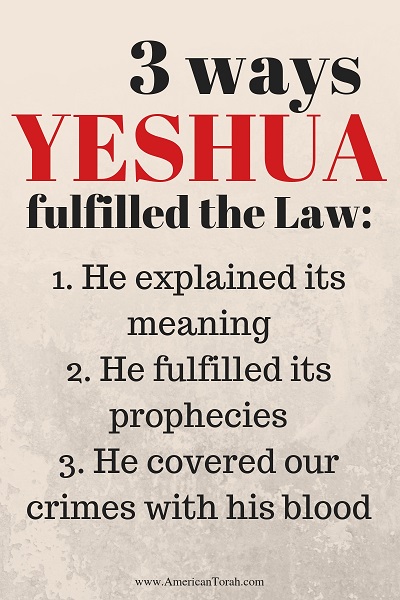James and the elders in Jerusalem told the new gentile converts not to eat meat sacrificed to idols (Acts 15 & 21). Paul told them there is nothing wrong with eating so long as you don’t do it in front of anyone who believes it’s wrong (1 Corinthians 8 & 10). And then Yeshua castigated two churches in the Revelation for teaching people to eat food sacrificed to idols (Revelation 2). Or at least that’s what many of us have been taught. More likely, you haven’t been taught anything about it at all except that all rules about what you can and cannot eat have been thrown out.
Actually, James and Yeshua were talking about something that is–and remains–very clearly wrong while Paul was talking about a fine point of law about which intelligent and reasonable people could easily disagree.
Temple sacrifices, both biblical and pagan, involve killing an animal, performing some ritual with its blood or carcass and then eating some or all of the animal. A sacrifice was often occasion for a community feast. The Greeks had a word for the sacrificial animal and the ensuing roast: eidolothuton. That’s the word that Yeshua and the Apostles used when they talked about meat sacrificed to idols. As far as the ritual goes, the religion of the Jews and that of the Greeks would have looked very similar to people in the first century. However, there is one major difference: sacrifices made to Yahweh in the Temple in Jerusalem actually accomplished something real, while sacrifices made in any of the thousands of pagan shrines did absolutely nothing but keep people distracted from the truth and enslaved to sin. God absolutely forbade his people from participating in the eidolothuton. He called it adultery. James and Yeshua reaffirmed that prohibition.
Then Paul came along and started telling people that it was alright to eat the eidolothuton so long as they understood that it was just meat with no supernatural significance. Some will tell you that this is because Yeshua did away with all the rules about what you can eat and what you can’t. Since Yeshua said otherwise many years after Paul’s letter to the Corinthians, that doesn’t really make sense. So what did Paul really mean?
Here’s what Paul was actually trying to tell the Corinthians:
There is no spiritual significance to meat sacrificed to idols beyond that attributed to it in the minds of those who participate in the sacrifice. It has no actual power in itself and can do you no spiritual harm or good through eating it as mere food and not as a religious observance. If you eat a steak that once happened to belong to a bull sacrificed to Z–s, what of it? If you aren’t eating it as a sacrificial animal, but merely as a steak, then there’s no problem. You could even eat it in the god’s temple. So long as you have no thoughts to honor the false god (or the true God for that matter) through the eating of sacrificial meat, then you aren’t actually participating in the eidolothuton, and you’ve committed no sin.
If you buy a rack of lamb in the market, don’t worry about whether or not it was sacrificed to an idol. If you don’t know one way or another then it can’t possibly do you any harm.
However, many people who have lived their whole lives in pagan idolatry could never eat such a meal without thinking that they were somehow honoring the idol. If they were to see you in the temple of Z–s, eating the eidolothuton, might they think that you too believe there is spiritual power of some kind in the actual flesh of the sacrificed animal? If they are led astray, thinking it now acceptable to participate in an idolatrous ritual as a religious observance, then you have done him a severe disservice. I would rather never eat meat again than cause someone who misunderstood my actions to revert to idolatry.
Paul was not making a statement about clean vs unclean meat and was certainly not dismissing any part of God’s Law. He kept Torah all his life, even to the point of taking a Nazirite vow and bringing sacrifices to the Temple after he had been preaching to the gentiles for many years. He wrote to the Corinthians was to clarify the law, not to annul it.



 I can understand your confusion regarding the apparent disparity between Jesus’ message of love and the necessity of his violent death. It never added up for me either. However, the problem is in our perceptions of Jesus’ ministry and purpose. He didn’t come to replace the law with a new standard. In fact, he said the exact opposite: “Think not that I am come to destroy the law, or the prophets: I am not come to destroy [kataluo: to tear down], but to fulfil [pleroo: to build up or to carry into effect]. For verily I say unto you, Till heaven and earth pass, one jot or one tittle shall in no wise pass from the law, till all be fulfilled. Whosoever therefore shall break one of these least commandments, and shall teach men so, he shall be called the least in the kingdom of heaven: but whosoever shall do and teach them, the same shall be called great in the kingdom of heaven.” If fulfilling the law is the same as annulling it for everyone else, then Jesus’ statement here was meaningless: “I am not come to destroy, but to abolish.”
I can understand your confusion regarding the apparent disparity between Jesus’ message of love and the necessity of his violent death. It never added up for me either. However, the problem is in our perceptions of Jesus’ ministry and purpose. He didn’t come to replace the law with a new standard. In fact, he said the exact opposite: “Think not that I am come to destroy the law, or the prophets: I am not come to destroy [kataluo: to tear down], but to fulfil [pleroo: to build up or to carry into effect]. For verily I say unto you, Till heaven and earth pass, one jot or one tittle shall in no wise pass from the law, till all be fulfilled. Whosoever therefore shall break one of these least commandments, and shall teach men so, he shall be called the least in the kingdom of heaven: but whosoever shall do and teach them, the same shall be called great in the kingdom of heaven.” If fulfilling the law is the same as annulling it for everyone else, then Jesus’ statement here was meaningless: “I am not come to destroy, but to abolish.” The Kingdom of Heaven, as all other kingdoms, ultimately belongs to the King of Kings. It is his to give and take away as he sees fit.
The Kingdom of Heaven, as all other kingdoms, ultimately belongs to the King of Kings. It is his to give and take away as he sees fit.